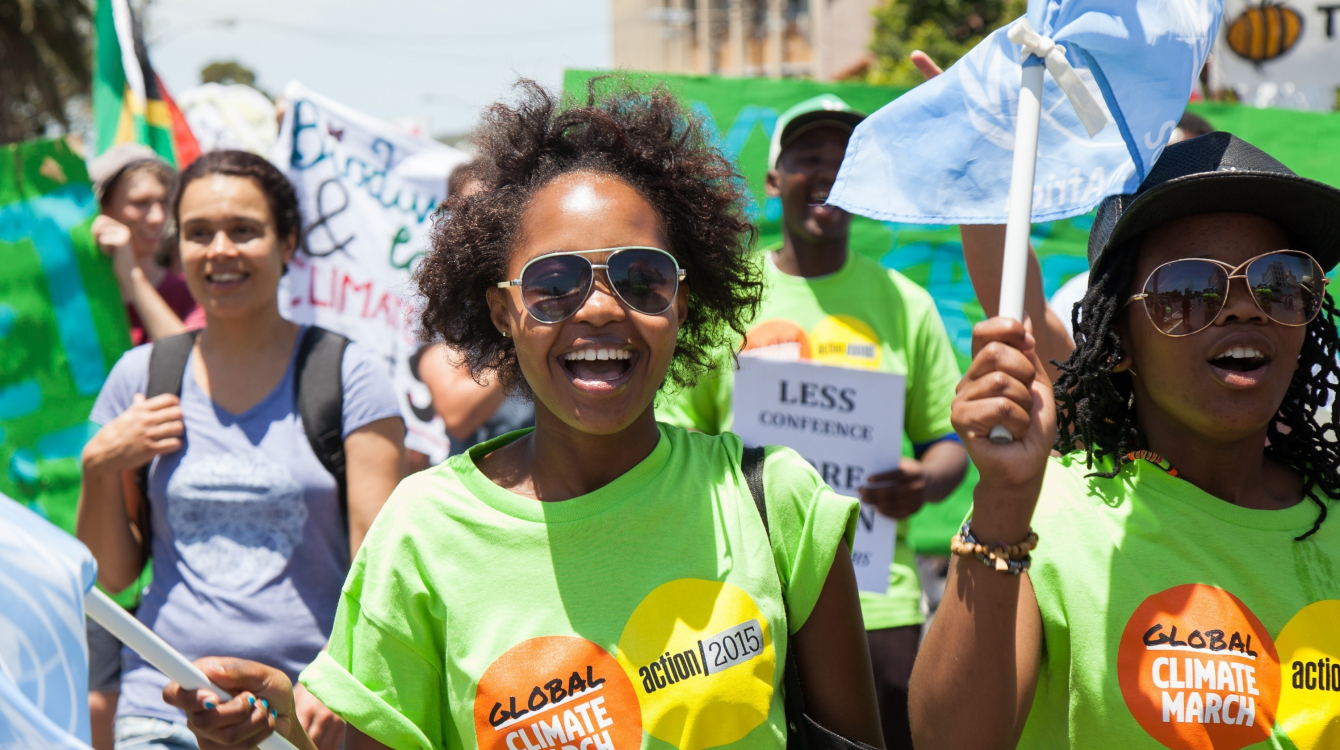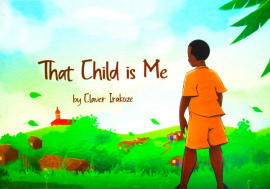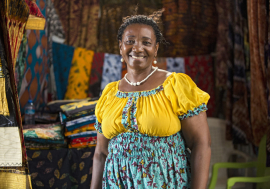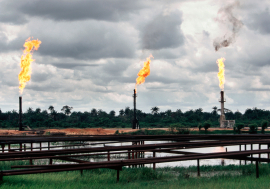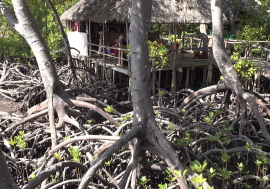The effects of climate change are being felt in Africa; countries, organisations and individuals, including young people, are taking actions to tackle these effects. In this edition, we highlight some outstanding climate action initiatives by young Africans.
The devastating effects of climate change, from longer periods of drought, more frequent wildfires and loss of sea ice to an increase in the number, duration and intensity of tropical storms, are being felt around the world with an intensity that underscores the immediate need for concerted efforts.
In March and April, cyclones tore through the Southern African countries of Malawi, Mozambique and Zimbabwe, taking the lives of hundreds and injuring and displacing thousands. According to the UN Office for the Coordination of Humanitarian Affairs (OCHA), the natural disaster affected more than 1.9 million people across the region, most requiring humanitarian assistance.
In the Horn of Africa and in West Africa, droughts and flooding are frequent and intense. In the Sahel region, prolonged droughts exacerbate desertification, while the rise in sea levels in the coastal cities of West Africa, from Ghana to Benin, is ravaging farming and fishing communities.
Floods in South Asia have taken more than 100 lives, while snow has been sighted in parts of Africa. Wildfires are burning across the state of New South Wales, Australia, while storms continue to batter the Americas. In Europe and parts of the US, temperatures have reached record highs. No region is immune.
After years of discussion and debate, scientists now agree that human activities, including the burning of fossil fuels, commercial farming and land clearing, are releasing greenhouse gases into the atmosphere. These gases trap heat from the sun, which leads to global warming.
“Nature is saying it is time to take action,” says Inger Andersen, executive director of the United Nations Environment Programme.
According to Ms. Andersen, annually the world is currently losing 1 million species due to climate change and pollution is causing about 2.6 million premature deaths globally.
September 2019 summit
The UN Secretary-General’s Climate Action Summit 2019 follows the Global Climate Action Summit of September 2018 in San Francisco and the 2015 Paris Agreement on climate change, which commits parties to the agreement to act to limit global warming to 1.5 to 2 degrees C above pre-industrial levels. They were required to communicate by 2020 their plans to achieve those targets.
With this in view, UN Secretary-General António Guterres has called on leaders to come to New York on 23 September with concrete, realistic plans to enhance their nationally determined contributions (NDCs) on adaptation by 2020. NDCs are action plans by governments and include climate-related targets, policies and measures for implementation. In October the International Panel on Climate Change released a special report warning policymakers that catastrophic climate change may only be avoided if states make efforts to reduce greenhouse gas emissions by 45% from 2010 levels by 2030 and to achieve net zero emissions by 2050.
Mr. Guterres in September 2018 laid out expectations for this year’s Climate Action Summit: “I want to hear about how we are going to stop the increase in emissions by 2020, and dramatically reduce emissions to reach net zero emissions by mid-century.”
Ms. Andersen adds, “World leaders in the summit will step in and step up their commitments to, for example, choosing renewable energy, decarbonizing their production and investing in nature-based solutions such as the restoration of forests and degraded lands.”
But there is urgency. “There is no more time to waste,” Mr. Guterres said. Leaders should come to the meeting “not just to report on what they are doing but also what more they intend to do.”
He listed actions with high potential to curb greenhouse gas emissions and promote adaptation and resilience, including accelerating the shift from fossil fuels to renewable energy, mobilizing finance to drive decarbonization, advancing global efforts to address and manage the impacts and risks of climate change, and engaging youth and the public in general.
During this year’s Africa Climate Week, held in Accra, Ghana, in March, a representative of YOUNGO, the official youth constituency of the UN Framework Convention on Climate Change (UNFCCC), noted that African countries, which contribute comparatively little to global emissions, have focused their NDCs on adaptation.
Major catastrophes such as the recent cyclones often grab the headlines; yet largely unnoticed climate change-related catastrophes take place every week, mostly in developing countries, says Mami Mizutori, the UN Secretary-General’s special representative on disaster risk reduction. Ms. Mizutori echoes the call for global action on climate change in an interview with the Guardian, a UK newspaper.
The UN International Strategy for Disaster Reduction (UNDRR) estimates that from 1998 to 2017, global climate change disasters were worth $2.2 trillion in direct economic loss; other disasters accounted for $0.7 million. UNDRR also reports that in Africa, the economic impact of natural disasters in 2014 alone was $53.19 billion.
The time to act is now
Luis Alfonso de Alba, UN Special Envoy for the 2019 Climate Summit, reminds African governments, civil society and the private sector that the time for talk is over. It is time for action, he says, adding, “We know what to do.”
At the recent Africa Climate Week, African leaders committed to acting on climate change, while individuals and communities shared the actions they were already taking.
“We the youth are calling on our respective governments to raise ambition and step up climate action to enable us to meet our targets,” youth delegates Zelda Kerubo and Desmond Alugnoa told the gathering in a joint statement.
From recycling to sustainable production and consumption, several local initiatives, some supported by international aid organizations, are already providing scalable sustainable solutions to climate-related problems, including plastic waste management, sustainable energy consumption and carbon emissions traps.
The Ghana Bamboo initiative is one of the enterprises working on sustainable production and consumption. In Uganda, the students of St. Kizito High School in Namugongo are transforming biowaste into fertilizers and recycling plastics for use in arts and crafts (see pages 6 and 7).
Although these initiatives have a limited impact on global warming, one must start somewhere, says Rukayatu Sanusi, executive director of the Ghana Climate Innovation Centre (GCIC).
The GCIC is one of the climate innovation centres the World Bank Group and its partners sponsor around the world. Its mission is to develop and assist pioneering start-ups addressing climate change.
“We are seeing keen interest from developing countries in supporting initiatives that help their industries innovate and deploy new solutions for economic development and environmental protection,” says Ganesh Rasagam, a practice manager with GCIC.
Governments, industries and civil society have a huge role to play in addressing climate change as a development priority, formulating appropriate policies and investing in climate resilience initiatives.
Governments are “front and centre, driving the movement for climate action,” says Mr. Guterres.


